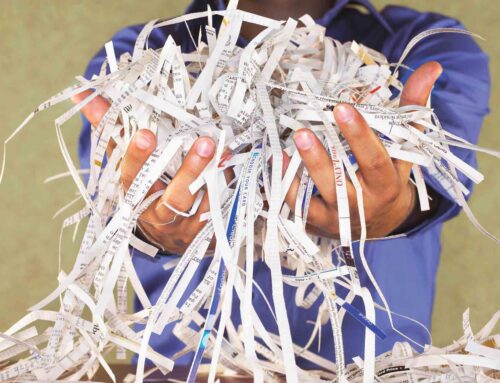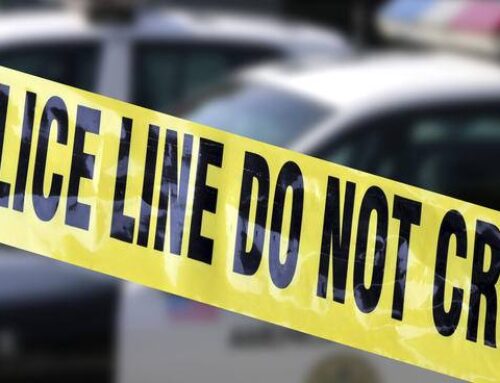Brian Cahill believes it’s his job to protect his famly.
“The police have no responsibility to protect me from crime. Their responsibility is to investigate it after it happens,” says Cahill, a Lake Highlands native who makes a living as a woodworker.
“My personal view on carrying a firearm is that it’s another tool I have at my disposal legally to help protect myself and my family,” he says. “I look at it in the same way as having a fire extinguisher in my kitchen and jumper cables in my car.”
That’s why he applied for and received a concealed weapon permit from the state. And perhaps like the hundreds of other concealed weapon permit holders in Lake Highlands, his reasons for doing so are partly a response to Dallas crime rates and partly a matter of exercising what he calls his constitutional right.
“I’d like to see more people with them,” Cahill says about the permits. “I think it’s a deterrent.”
So now we know why neighbors legally carry guns. But do their guns make them any safer than those who don’t?
THE TRUTH IS OUT THERE
It has been almost 10 years since the Texas Department of Public Safety began issuing concealed weapon permits, and more than 240,000 permits have been issued.
Dallas County has 21,369 permit-holders, the second highest number in the state. (Houston’s Harris County has 36,187 people licensed to carry concealed weapons.)
And 1,168 of those packing heat live in our neighborhood.
Critics of concealed weapon permits argue that despite the number of people carrying guns, violent crime numbers are still high. Those on the other side of the issue say high crime numbers give even more of an incentive to slip a gun in your waistband or purse before you leave the house.
The numbers themselves send mixed messages.
For instance, half of our neighborhood’s 2002 murders occurred in one Lake Highlands Zip code, 75243, which also had the neighborhood’s highest number of concealed weapon permit holders at 385 (see chart, page 10, for a Zip-code breakdown of concealed gun licenses and crime statistics).
Yet the most aggravated assaults, by a large margin, occurred in 75231, which had the fewest number of concealed permits in Lake Highlands at 200.
People on all sides of the issue tend to agree that the number of concealed handgun permits probably doesn’t reflect the actual number of people carrying concealed weapons at any given time because of the time and expense involved in becoming licensed.
A new permit costs $140 and only those who pass criminal background checks and are trained by a certified instructor can apply. Training takes 10-15 hours and includes time on a shooting range and classroom lessons about state law and firearms safety. Permits are good for four years.
Cahill agrees that some people who carry guns don’t go through the time and expense of getting a permit. That’s why, he says, policemen he encounters tend to view the permit as a “good guy card” because they know the holder has passed a criminal background check.
For his part, Cahill, 49, pretty much fits the demographic profile of the typical permit holder. According to the Texas Department of Public Safety, three out of four permit holders – 74 percent, to be exact – are men.
Although Cahill says he has never used his Glock to protect himself, he believes crime is worsening.
“In the late ’50s and early ’60s, you didn’t have to worry about being carjacked in front of the grocery store,” he says. “I don’t remember anybody being robbed or shot at the local car washes, whereas now that happens.”
Carrying a gun can deter crime, he says, just like participating in a neighborhood crime watch group, which he did for years.
That’s true. But statistically speaking, residents of Lake Highlands and other Dallas neighborhoods are less likely to be victims of a violent crime than those living in South Dallas. For example, of the city’s 196 murders in 2002, 41 occurred within the Lake Highlands boundaries.
But police acknowledge that property crimes in the city’s northern half – particularly home, car and business burglaries – remain troublingly high. And area residents – even those who don’t carry weapons – say that property crimes, while not typically life-threatening, can jeopardize their feelings of safety and spur people to buy guns for self-protection.
Sharon Smith, crime watch coordinator for the Highland Meadows Neighborhood Association, says police have told her that drugs often are at the root of her neighborhood’s problem.
“Suspects steal stereos and other items from vehicles, or mowing equipment from storage sheds, in order to get quick cash for the purchase of drugs,” she says.
Police Sgt. Tony Crawford says the population in Northeast Dallas is dense compared to other parts of the city, owing in large part to the number of apartment complexes in the area.
And higher population density tends to lead to more crime, experts say.
DO GUNS PREVENT CRIME?
“I can understand people wanting to carry a gun, but it bothers me to have just plain private citizens carrying a gun,” says Joan Quiett, who heads the Lake Highlands #1076 Crime Watch organization.
“You read about the road rage. In some of those, if so many people didn’t have a gun, it would not have escalated the way it did,” she says.
Crime watch volunteers do their patrols without guns.
“Our only ‘weapon’ is a cell phone, which is used to call 911 if we see anything suspicious that a police officer should investigate,” says Smith, who coordinates the Lake Highland’s Highland Meadows Neighborhood Association.
“Patrol members receive prior training from the police, during which it is stressed that we are to be completely non-confrontational; those on patrol do not even get out of their vehicles until they have completed their two hours” of training.
But Cahill believes having access to a gun and knowing how to use it shows a citizen’s willingness to take responsibility. Restaurant and business owners who post signs banning concealed weapons are effectively alerting criminals that their establishments are easy targets, he says, while places that permit patrons to carry their concealed weapons are better protected.
It’s an attitude he conveyed to his two children, a daughter now in high school and a 20-year-old son who is a Marine stationed in Iraq.
From an early age, both children were allowed to handle weapons “to take away the mystique,” he says. “If we had the same mystique about kitchen knives, we’d have kids sneaking into the kitchen at night to see the knives.
“They were always shown how to make sure it was unloaded and to handle it safely,” he says. “As soon as they were old enough to want to go shoot, they were allowed to go shoot. I’d rather them know how to use one should they have to protect themselves or their family.”
MEN VS. WOMEN: WHO CARRIES?
Statistics show the state’s typical permit holder doesn’t fit the pattern of the likeliest crime victim in Dallas, according to local and state figures.
Although men hold three-quarters of the state’s concealed weapon permits, they were crime victims in less than half the city’s reported cases in 2002, according to Dallas police statistics. One area gun trainer says the state’s statistics are consistent with his client base.
“Most are middle-aged men…about 20 percent are women,” says Jack W. Griffith, a Euless-based handgun instructor.
Some say more women should consider carrying guns since they are often victims of crime.
“I want all women to have a concealed handgun license,” says Judy Rhodes, founder of Diva, Texas Women’s Shooting Sports.
Her organization offered concealed weapon classes for the first time this year, and she says the group received a good turnout from women who were not part of the group’s original focus on shooting sports.
“We had a lot of real estate women, and that’s what we’re trying to focus on now,” Rhodes says. “We had one who had a problem with an open home with a man coming in” to attack her.
Women are vulnerable particularly when they’re out alone, Rhodes says, but many have traditionally been anxious about handling firearms.
“A lot of women are afraid of handguns and the reason they are afraid is because they don’t know how they work,” says Rhodes, whose group will offer a class again in the spring that shows women how to handle, load and unload guns.
GUNFIGHT AT THE O.K. CORRAL?
Jan Crabtree, co-president of the Dallas chapter of the Million Mom March, is on the polar opposite side of the issue. Her group aims to reduce the number of weapons in the general population.
“I think they have kind of a fantasy feeling that someone will draw a gun on them, and they will draw theirs, and they will have a shoot out,” says Crabtree of those who carry concealed weapons.
In reality, she says, “It doesn’t protect them. You very seldom hear about occasions where they have protected themselves. We just feel that the more guns that are out there in society, the more people that are going to get hurt.”
But she says her organization spends most of its time working on assault weapon bans and other gun-related issues, rather than trying to overturn the concealed weapon law.
“We understand the gun culture here,” she says. “Here in Texas, we don’t think we can win that one right now.”
Larry Arnold, director of the Texas Concealed Handgun Association, says gun control enthusiasts always “predict disaster.”
“Since the debate over Florida’s concealed carry law in 1986, whenever the subject of carrying firearms has come up, those who oppose guns have predicted disaster,” he says. “For all of those dozens of dire predictions over nearly two decades, the anti-gun folks have been wrong every single time.”





